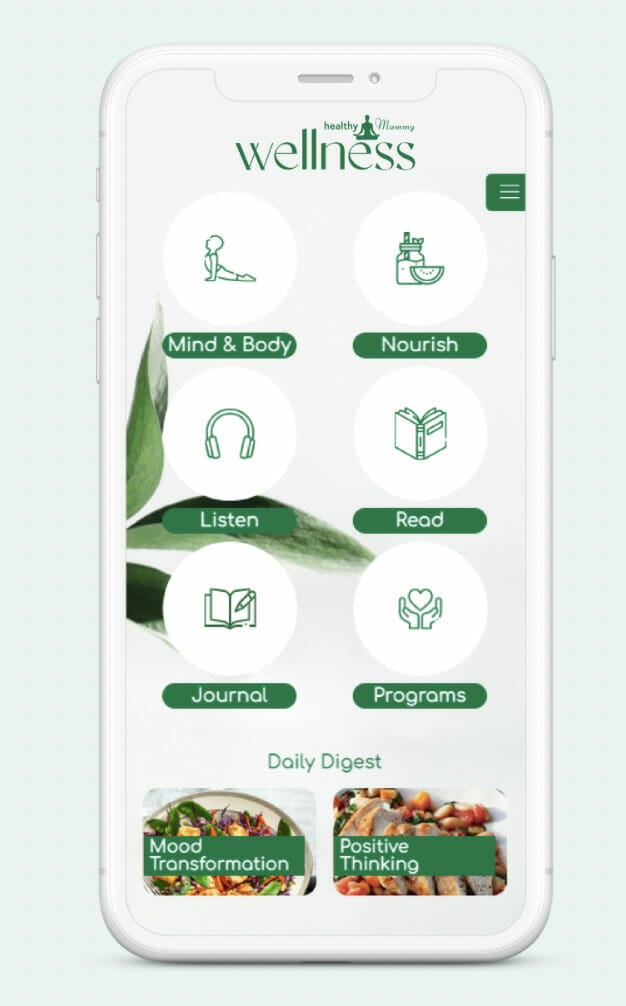![]()
Why journaling can be so good for your mental health

Maybe you kept a diary in your teens and haven’t written down your thoughts since. But journaling isn’t just for young girls daydreaming about their high school crush!
In fact, many well-being professionals are encouraging adults to start writing down their thoughts, as there are HEAPS of benefits for your mental health.
Whether it’s to reflect on your day, keep track of your goals, vent or just express yourself… just putting your words down on paper can be very cathartic.

Dr Bec Jackson is one of our fantastic wellness experts and a consulting psychologist. She believes that writing down your feelings helps you process them.
“Journaling is a powerful tool for coping with emotions – for kids and adults, the emotional release can lower anxiety and stress and help you sleep better,” she says.
“It can also put you into a state of mindfulness, where ‘negative’ experiences don’t seem quite so overwhelming.”
How journaling can benefit you

1. It reduces stress.
Writing down how you’re feeling and organising those feelings can help relieve stress. It’s almost like you’re getting rid of those thoughts as soon as the ink hits the paper.
If you aren’t sure how to start journaling, you could write down the things you’re grateful for, the things you’d like to work on and any goals you have.
2. There are health benefits.
Various studies show that when someone keeps a diary, it helps lower blood pressure and improve your mood. It also creates a greater self of well-being.
They say a problem shared is a problem halved, and journalling kind of works like that, as you are getting things off your chest.
3. Journaling keeps your memory sharp.
Not only does writing down what you do each day keep your brain ticking, but it also helps boost your memory.
4. Improves your mood.
Creating a journal is also an effective way to raise self-esteem as it creates a sense of satisfaction and appreciation for what you have in your life.
Sometimes when you write something down, you see it for what it is. It may be that you felt you had a bad day, but once you write it down, your problems might actually seem less ‘big’ on the page. Your perspective on things might change.
5. Journaling makes you more expressive.
If you’re more of an introvert, writing down your thoughts might help you become more expressive, and this might also help you to become more social.
Journaling might also encourage you to look for social support.
6. It helps you move on.
Journalling could stop you from obsessively brooding over an event in your life. Once you’ve logged that thought, the emotion attached to it might disappear or lessen.
Often people feel liberated when they write down what is bothering them. You may also begin to feel clearer afterwards.
7. Helps you control your emotions.
Those who log down their inner thoughts when journaling are more aware of how they are feeling. This can help you have more control of your emotions.
Feeling more in control of your emotions and thoughts might help you feel more in control of your life.

How to get started journaling
1. Write on whatever you feel most comfortable with.
You don’t have to go all out when journaling. You don’t even have to buy a journal! You could use your laptop or take notes on your phone if you don’t want to physically write.
2. Give yourself a few minutes at the end of each day.
Do this without distraction, to think about the things that happened and how you feel and write them down.
3. Take your time opening up.
You might just want to keep track of what you did that day and then build it up from there.
4. You don’t have to write something every day.
You can write things down only when you feel like writing something. It’s up to you.
5. Let it all out if you want to.
Be blunt, petty and honest, don’t censor your feelings when journaling – no one but you will see it. If you are worried someone will find it, write it and get it out, then delete it! Once it’s out of your system, it’s out.
6. Try to see things from all different perspectives while you’re journaling.
It might help you see something from someone else point of view or the reason behind those actions that made you feel happy or sad.
7. Look for solutions if it helps.
It might help you gain clarity and feel in control or give you some direction in life if you’re feeling lost.
8. Try writing a pro and con list.
For every negative thought you list, answer it with a positive one.
9. Be as creative as you like!
You can use colours when journaling to show your mood, draw pictures, write a poem and add photographs. It’s your space to do what you want.
10. Read your journal if you want to.
It might help to see how far you’ve come. Or, if you don’t want to look back and read it, you might’ve been going through a hard time. That’s okay as well. It’s totally up to you!
At the end of the day, when we get any thoughts out of our heads and into the world, it creates a sense of reality and objectivity and reduces it down to size.
That’s ultimately what you’re looking to do when the world feels just a bit too big.
7 ways to help raise your self-esteem
The best diet for your mental health
Get Access to Mental Health Wellbeing Programs in the Wellness App

The Healthy Mummy Wellness app is built to support mums’ mental, physical and social well-being.
We have expert advice to help mums makeover their minds, transform their mood, manage their hormones, sleep better and engage with their family.
You can listen to podcasts, read blogs, work out with our trainers and find healthy, family-friendly recipes from the palm of your hand.


